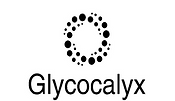
OUR RESEARCH
Improving cancer immunotherapy is our main research goal. We use in vitro approaches and in vivo tumor models, as well as clinical samples, to study immune-cancer interactions. To further increase the impact of our research, the Cancer Immunotherapy Lab works closely with the Medical Oncology team in the Universitäres Zentrum für Zelltherapien und Immunmodulation (UZTI), at the University Hospital in Basel, conducting early clinical interventional trials and clinical studies.
GLYCOSYLATION IN THE CANCER-IMMUNITY AXIS
Glycans coat the surface of every cell in our body and play a key role in physiological processes, such as cell-to-cell communication. In cancer, dysregulated glycosylation, leading to increased branching of N-glycans, truncation of O-glycans, aberrant sialylation (addition of sialic acid) or fucosylation (addition of fucose) are associated with poor prognosis in different tumor types.
For example, hypersialylation is not only related with an increased metastatic potential but also to immune evasion. Siglec receptors recognize sialic acid ligands and are present in a variety of immune cells (from myeloid cells to T cells). In line with other checkpoint receptors in cancer (e.g. PD-L1/PD-1), Siglecs are normally coupled with intracellular inhibitory domains and their expression leads to reduced anti-tumoral response. Our group studies the sialic-acid/Siglec interactions in cancer and fucose metabolism. We use pre-clinical models to test new therapeutic modalities targeting these axes, such as antibody-blocking antibodies or sialidases and fucosidases, alone or in combination with other therapies.
Metastasis is a multistep process involving local invasion by tumor cells, intravasation, survival in the circulation, extravasation, and colonization of distant organs. Circulating tumor cells (CTCs) are malignant cells that detach from the primary tumor and enter the bloodstream, where they serve as the cellular intermediaries of metastatic dissemination. CTCs can circulate as single cells or in clusters, associated with immune cells, exhibiting markedly enhanced metastatic potential.
On the tumor cell surface, aberrant glycosylation is known to contribute to immune evasion and metastasis. However, the specific roles of glycans in the context of CTC biology remain poorly defined. Using CTCs isolated from breast cancer patients and mouse models, this project aims to elucidate the functional role of glycosylation in CTC-mediated metastasis and ultimately find novel therapeutic targets.
GLYCANS IN METASTASIS
CELLULAR IMMUNOTHERAPY IN CANCER
Although adoptive cell therapy (ACT) using ex vivo-expanded autologous tumor infiltrating lymphocytes (TILs) or engineered chimeric antigen receptor (CAR) T cells have shown durable responses in some solid tumors, a majority of patients fail to achieve therapeutic benefit. Tumor-specificity and infiltration, fitness, persistence and memory are key factors for ACT efficacy.
On one hand, we use clinical samples of TIL therapy patients and study T cell dynamics to distinguish elements that contribute to response to treatment. With these data, we create in vitro and in vivo models to improve T cell phenotypes and TIL fitness to increase therapy efficacy. On the other hand, regarding CAR T cell cell therapy, we study novel molecular constructs that enhance T cell fitness and persistence in vivo, leading to durable responses and memory formation. In both cases, the ultimate goal is to translate the findings to early phase clinical trials and improve cancer patients' outcomes.
Collaborations that advance cancer treatment








_2x.png)

.png)


